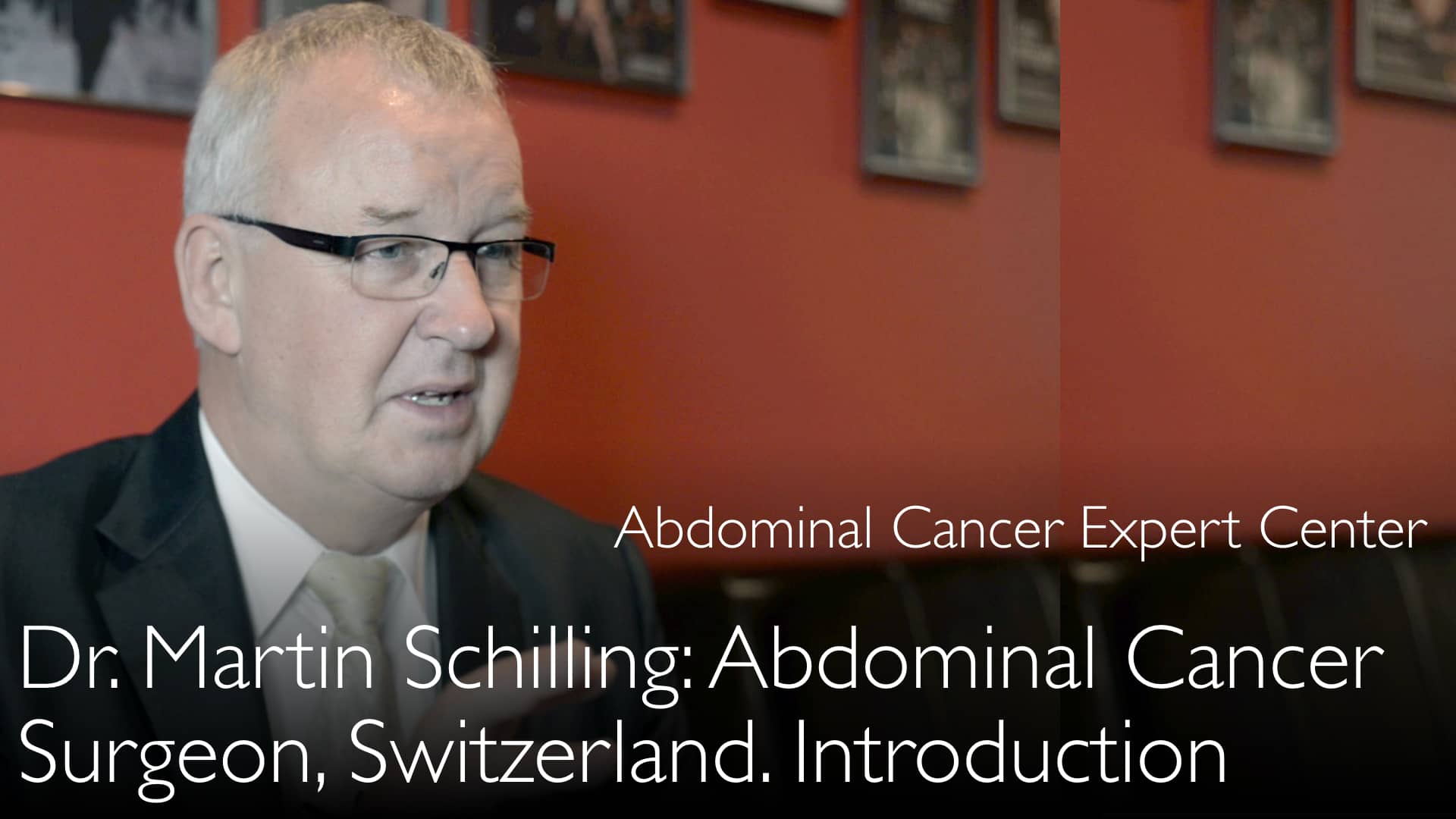Leading expert in gastrointestinal cancer surgery, Dr. Martin Schilling, MD, explains the complex treatment of hypopharyngeal carcinoma, a rare variant of esophageal cancer. He details a specialized multidisciplinary surgical approach. This involves collaboration between ENT and gastrointestinal surgeons. The procedure focuses on complete tumor resection and meticulous reconstruction using a gastric tube. This technique is crucial for achieving long-term survival and preserving quality of life. Dr. Martin Schilling, MD, emphasizes that a second opinion is vital for confirming the best treatment plan for advanced cases.
Advanced Hypopharyngeal and Esophageal Cancer Treatment and Surgical Options
Jump To Section
- Understanding Hypopharyngeal Cancer
- Surgical Approach Decision
- Specialized Reconstruction Technique
- Multidisciplinary Team Importance
- Role of Medical Second Opinion
- Full Transcript
Understanding Hypopharyngeal Cancer
Hypopharyngeal carcinoma is a specific and challenging variant of esophageal cancer. Dr. Martin Schilling, MD, describes its location as very high in the esophagus or very low in the pharynx. This anatomical area is surrounded by many vital structures, which complicates surgical intervention. This type of cancer requires highly specialized expertise for effective treatment.
Surgical Approach Decision
Choosing the best surgical treatment for a patient depends on several key factors. Dr. Martin Schilling, MD, explains that the patient's general condition and the size of the esophageal cancer tumor are primary considerations. The goal of surgery is always a complete resection of the tumor. This involves removing not just the cancer but also all surrounding fatty tissue, lymph nodes, and lymphatic tissue. A more radical resection is often pursued when the patient is in better health.
Specialized Reconstruction Technique
Reconstruction of the esophagus after resection is a critical component of the procedure. Dr. Martin Schilling, MD, and his team have developed a special type of gastric tube for this purpose. This technique is used for both very advanced and recurrent hypopharyngeal esophageal cancer. The reconstruction is performed by the gastrointestinal surgical team following the tumor resection, which is typically done by ENT surgeons. This method provides patients with superior long-term survival results and is a vital option where other treatments are limited.
Multidisciplinary Team Importance
A multidisciplinary team (MD T) approach is fundamental to achieving the best outcomes. Dr. Martin Schilling, MD, stresses that this collaborative model is the best approach for all cancer treatment. For hypopharyngeal and esophageal cancer, it involves having ear, nose, and throat (ENT) surgeons and gastrointestinal cancer surgeons operating together on-site. This ensures that patients receive perfect, personalized treatment plans that address every aspect of their care.
Role of Medical Second Opinion
Seeking a medical second opinion is highly recommended for patients with advanced disease. Dr. Anton Titov, MD, discusses how a second opinion helps clarify an advanced hypopharyngeal cancer diagnosis. It is crucial for deciding if complex resection surgery is a viable option. For stage 4 esophageal cancer or cases with metastatic lesions, a second opinion from a leading expert like Dr. Martin Schilling, MD, provides confidence that the chosen treatment is indeed the best available.
Full Transcript
Leading gastrointestinal cancer surgeon discusses hypopharyngeal cancer. It is a variant of esophageal cancer. Esophageal cancer in the hypopharyngeal area is usually resected by a surgical team. The surgical team includes ENT and gastrointestinal cancer surgeons. Reconstruction of the esophagus is very difficult, but it is most important for quality of life after surgery. A multidisciplinary team approach to the treatment of esophageal cancer is key to long-term survival. It is crucial for the potential cure of patients.
Dr. Anton Titov, MD: Hypopharyngeal cancer. Esophageal cancer treatment options. For a given patient, how do you decide which method of surgical treatment of esophageal cancer you would use?
Dr. Martin Schilling, MD: Choosing the best treatment of esophageal cancer for a patient depends on the general condition of the patient. It also depends on the size of the esophageal cancer tumor. The better the condition of the patient is, the more radical resection of the esophageal tumor we should do. But the goal of esophageal cancer surgery should always be this: we must aim for complete resection of the esophageal cancer tumor. We should also resect all surrounding fatty tissue and lymphatic tissue.
Dr. Anton Titov, MD: One of the particular types of esophageal cancer is hypopharyngeal carcinoma. Hypopharyngeal esophageal carcinoma is located very high in the esophagus or very low in the pharynx. The hypopharynx is an anatomical area that is full of vital surrounding structures. You have particular expertise in treating hypopharyngeal esophageal cancer. Can you please discuss your treatment of hypopharyngeal carcinoma? What approaches do you take in these patients? What kind of results have you achieved in hypopharyngeal esophageal carcinoma treatment?
Dr. Martin Schilling, MD: Treating hypopharyngeal esophageal cancer goes back to the reconstruction technique. We use a special type of stomach gastric tube that we developed. We perform hypopharyngeal cancer esophageal cancer surgery. We operate together with our ear, nose, and throat (ENT) surgical colleagues. We do these operations in very advanced hypopharyngeal esophageal cancer. We also operate on recurrent hypopharyngeal esophageal cancer. ENT surgeons usually do the resection of hypopharyngeal cancer. We do reconstruction of the esophagus from a gastric tube. This gives patients superior long-term survival results. It is especially important for esophageal cancer patients. They do not have many other treatment options for their esophageal cancer.
Dr. Anton Titov, MD: You use a multidisciplinary team (MD T) approach in the treatment of esophageal cancer. You use MD T in hypopharyngeal carcinoma. The MD T approach gives patients the best results.
Dr. Martin Schilling, MD: That is correct. A multidisciplinary team approach is the best treatment approach for all cancer treatment. You have to have multiple specialists on site.
Dr. Anton Titov, MD: This gives cancer patients the perfect personalized treatment. Hypopharyngeal cancer and esophageal cancer treatment success depends on careful reconstruction.





